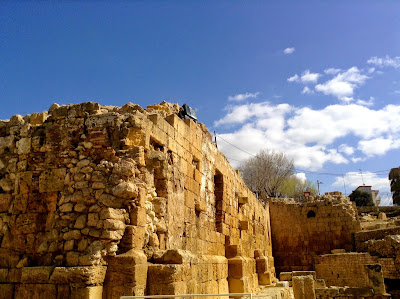XXVII
Hesterna tibi nocte dixeramus,
quincunces puto post decem peractos,
cenares hodie, Procille, mecum.
tu factam tibi rem statim putasti
et non sobria verba subnotasti
exemplo nimium periculoso:
μισω μναμονα συμποταν, Procille.
Last night, after five pints of wine,
I said, “Procillus, come and dine
Tomorrow,” You assumed I meant
What I said (a dangerous precent)
And slyly jotted down a note
Of my drunk offer. Let me quote
A proverb from the Greek: “I hate
An unforgetful drinking mate”.
LXIV
Bella es, novimus, et puella, verum est,
et dives, quis enim potest negare?
sed cum te nimium, Fabulla, laaudas,
nec dives neque bella nec puella es.
That you are young, beautiful and rich,
Fabulla, no one can deny.
But when you praise yourself too much,
None of the epithets apply.
LXXXVII
Ne gravitis hesterno fragres, Fescennia, vino,
pastillos Cosmi luxuriosa voras.
ista linunt dentes iantacula, sed nihil opstant,
extremo ruetus cum redil a barathro.
quid quod olet gravius mixtum dispasmate virus
atque duplex animae longius exit odor?
notas ergo nimis fraudes deprensaque furta
iam tollas et sis ebria simliciter.
Hoping, Fescennia, to overpower
The reek of last night’s drinking, you devour
Cosmus’ sweet-scented pastilles by the gross.
But though they give your teeth a whitish gloss
They fail to make your breath any less smelly
When a belch boils from your abyss-like belly.
In fact, blended with lozenges it’s much stronger,
It travels farther and lingers longer.
Give up these stale, transparent tricks. A skunk
Must be itself. Why not just be a drunk?
Here are a few videos which should give you the general idea...









































































